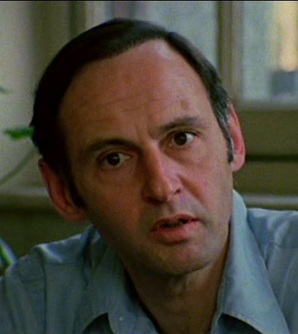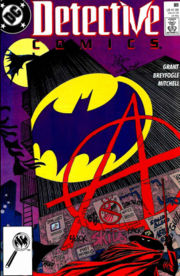An anarchist is an adherent of the philosophy of anarchism.
Contents
Anarchist or Anarchists may also refer to:
An anarchist is an adherent of the philosophy of anarchism.
Anarchist or Anarchists may also refer to:
Network, networking and networked may refer to:

Albert Isidore Meltzer was an English anarcho-communist activist and writer.
Black Hand or The Black Hand may refer to:
Donald Rooum was an English anarchist cartoonist and writer. He had a long association with Freedom Press who have published seven volumes of his Wildcat cartoons.

Paul Avrich was a historian of the 19th and early 20th century anarchist movement in Russia and the United States. He taught at Queens College, City University of New York, for his entire career, from 1961 to his retirement as distinguished professor of history in 1999. He wrote ten books, mostly about anarchism, including topics such as the 1886 Haymarket Riot, 1921 Sacco and Vanzetti case, 1921 Kronstadt naval base rebellion, and an oral history of the movement.

Anarchism has long had an association with the arts, particularly with visual art, music and literature. This can be dated back to the start of anarchism as a named political concept, and the writings of Pierre-Joseph Proudhon on the French realist painter Gustave Courbet. In an essay on Courbet of 1857 Proudhon had set out a principle for art, which he saw in the work of Courbet, that it should show the real lives of the working classes and the injustices working people face at the hands of the bourgeoisie.
Firebrand may refer to:
Anarchism in Canada spans a range of anarchist philosophy including anarchist communism, green anarchy, anarcho-syndicalism, individualist anarchism, as well as other lesser known forms. Canadian anarchism has been affected by thought from Great Britain, and continental Europe, although recent influences include a look at North American indigenism, especially on the West Coast. Anarchists remain a focal point in media coverage of globalization protests in Canada, mainly due to their confrontations with police and destruction of property.
Direct action is militant political action outside the usual political channels.

Queer anarchism, or anarcha-queer, is an anarchist school of thought that advocates anarchism and social revolution as a means of queer liberation and abolition of hierarchies such as homophobia, lesbophobia, transmisogyny, biphobia, transphobia, heteronormativity, patriarchy, and the gender binary. People who campaigned for LGBT rights both outside and inside the anarchist and LGBT movements include John Henry Mackay, Lucía Sánchez Saornil, Adolf Brand and Daniel Guérin. Individualist anarchist Adolf Brand published Der Eigene from 1896 to 1932 in Berlin, the first sustained journal dedicated to gay issues.
Anarchy is the state of a society being freely constituted without authorities or a governing body.

"Anarky in Gotham City" is a two-part comic book story arc which appeared in Detective Comics #608, in November 1989, and was continued the following month in Detective Comics #609. The arc was written by Alan Grant and illustrated by Norm Breyfogle, with editorial oversight by Dennis O'Neil. Coloring by Adrienne Roy and lettering by Todd Klein contributed to the interior artwork.
Some observers believe that existentialism forms a philosophical ground for anarchism. Anarchist historian Peter Marshall claims "there is a close link between the existentialists' stress on the individual, free choice, and moral responsibility and the main tenets of anarchism".
Anarchism in Algeria mainly concerns the history of the libertarian movement during and after French colonization in Algeria.
Insurrectionary anarchism is a revolutionary theory and tendency within the anarchist movement that emphasizes insurrection as a revolutionary practice. It is critical of formal organizations such as labor unions and federations that are based on a political program and periodic congresses. Instead, insurrectionary anarchists advocate informal organization and small affinity group based organization. Insurrectionary anarchists put value in attack, permanent class conflict and a refusal to negotiate or compromise with class enemies.
No gods, no masters is an anarchist and labor rights slogan.
Anarchism is a political philosophy and movement that calls for the abolition of the state.

An anarchist bookfair is an exhibition for anti-authoritarian literature often combined with anarchist social and cultural events. They have existed since at least 1983, beginning in London, and are held either annually or sporadically. Some have speakers or other events related to anarchist culture.
Anarchism in Norway first emerged in the 1870s. Some of the first to call themselves anarchists in Norway were Arne Garborg and Ivar Mortensson-Egnund. They ran the radical target magazine Fedraheimen which came out 1877–91. Gradually the magazine became more and more anarchist-oriented, and towards the end of its life it had the subtitle Anarchist-Communist Body. The anarchist author Hans Jæger published the book "The Bible of Anarchy" in 1906, and in recent times Jens Bjørneboe has been a spokesman for anarchism – among other things in the book "Police and anarchy".